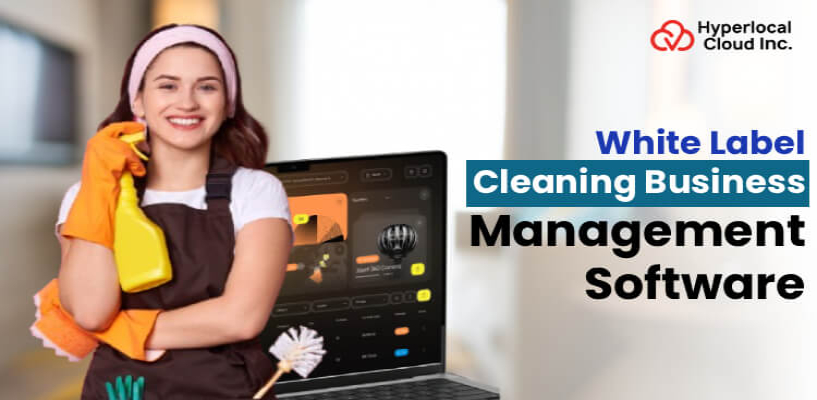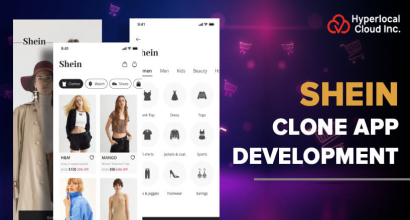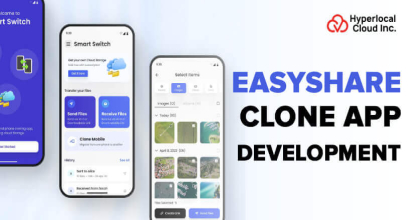The cleaning industry has experienced a significant change in recent years. When a labor-intensive and paperwork-heavy area has now become more organized and effective, the introduction of modern technology has occurred. This type of software helps cleaning companies manage everything from planning and employee tracking to customer communications and payment invoices. As the customer's expectations increase and competition increases, cleaning moves to a digital tool to streamline cleaning business operations and distribute better services.
Cleaning companies, especially to bring their offers to scale or diversity, utilize the white label software solution to enter the market. Another new, ongoing trend that cannot be ignored is the integration of AI and digitalization. This trend suggests that the industry not only optimizes but also increases at a rapid pace.
In this blog, we will introduce you to all the things needed to learn about white label cleaning business management software, how it works, what it provides in functions, and how it can be a source of income for entrepreneurs and service providers.
What is a Cleaning Business Management Software?
Cleaning business management software is a digital solution designed to help cleaning startups quickly deal with their daily operations. It acts as a central hub where business owners, managers, employees, and customers can interact and perform cleaning services.
Business owners can offer employment to cleaners, track their working hours, send payment invoices, manage requests, and monitor the use of equipment. Everything is given from a single platform, which can usually be reached via a mobile app or a web dashboard.
Such software is not limited to large companies. Even small and medium-sized cleaning companies can benefit from it. In fact, many software development companies now offer white label solutions that are affordable, easy to use, and adaptable for all sizes of companies.
Start Your Own Cleaning Software Brand Today
How Does a Cleaning Business Management Software Work?
Understanding how a cleaning business management software works is great before deciding to invest in one. The software usually works through a cloud-based routine that connects different users, which includes business owners, managers, valid-moment cleaners, and customers. A detailed overview of this is provided below.
1. User Accounts
Different users can log into the platform with their assigned roles. This means that the cleaners may see their assigned jobs, while managers can monitor progress and calibrate.
2. Job Scheduling
Managers or organizations can create cleaning agreements and assign them to the employees available based on location, accessibility, and skill sets. This software often comes with a calendar for easy planning and scheduling.
3. Real-Time Notifications
Both customers and cleaning workers receive real-time updates. The cleaners are informed of new tasks or changes, while customers receive reminders of appointments or updates.
4. GPS Tracking
Many platforms offer site tracking, allowing leaders to monitor the cleaner's movement and ensure timely reports and efficiency.
5. Digital Checklists
Cleaners can mark the completed task on a checklist, which helps maintain high-quality standards and ensures that no task is exempt.
6. Payment Integration
Customers can pay via software using an online payment portal. The system can automatically generate and send an invoice.
7. Customer Communication
This enables direct communication between customers and service providers, and facilitates quick solutions to problems.
8. Reporting and Analytics
The owner and manager can see detailed reports of the cleaner's performance, customer satisfaction, income generated, and more.
The Advantages of Investing in a White Label Cleaning Business Management Software
White label cleaning business management software offers a unique opportunity for entrepreneurs, technology companies, and cleaning companies to expand their services. Instead of developing a new software product from scratch, they can make an existing, fully developed platform their own by leveraging white label solutions.
1. Faster Time to Market
Developing software from scratch can take time, often extending for months or years. A white label solution enables you to launch your brand software within a few weeks, allowing you to respond quickly to market demand.
2. Cost Efficiency
The custom cleaning business management platform involves hiring developers, sensors, and a UX/UX designer, as well as infrastructure expenses and other related costs. White label solutions come at a fraction of the cost, making them ideal for companies with a limited budget.
3. Ready-Made Infrastructure
White label platforms come with all the essential features already built and tested. This includes user management, payment gateways, notifications, scheduling tools, and analytics. You get a robust solution without having to deal with the technical aspects of development.
4. Customization Opportunities
Although the white label platforms usually allow some level of customization or adaptation. You can change branding, logo, and even some features that fit your specific audience or market segment.
5. Scalable Business Opportunity
You can sell access to the software as your own product. Whether you are an entrepreneur or a cleaning agency owner, this can become an additional revenue stream. You can offer subscription-based services to other cleaning businesses under your brand.
6. Low Risk, High Potential
With a working product in hand, you can focus on marketing and customer acquisition. Since you are not responsible for development or server maintenance, the risk is significantly lower than building something from scratch.
Scale Your Cleaning Business with Smart Software
The Core Features of a Cleaning Business Management Software
The cleaning business management software is built with several core features that facilitate users to fulfill their ongoing requirements. The most relevant features of the platform are discussed in detail below.
1. Job Scheduling and Calendar View
This feature allows you to easily make, change, and track cleaning jobs. A visual calendar helps to assign features and manage the fee.
2. Employee Management
With the help of this feature, employees track performance, attendance, working hours, and accessibility. Some systems also include shift planning and wage support.
3. Customer Management
This feature enables the admins to save customer details, priorities, service history, and reactions in the same place. It helps to customize services and build long-term conditions.
4. Real-Time Notifications and Alerts
Users are informed of updates, cancellations, or reminders through push notifications, email messages, or SMS messages.
5. Invoicing and Payments
This feature automatically creates invoices and payments, and unites with the payment portal to receive credit cards, bank transfers, or mobile payments.
6. GPS Tracking and Route Optimization
This will enable admins to track employees' places during working hours and help them find the most effective route to reduce the cost of travel time and fuel.
7. Task Checklists and Quality Control
Assist employees in following standard procedures with adaptable checklists, allowing supervisors to monitor the execution of the work.
8. Customer Feedback System
The feature enables admins to collect feedback from users through rankings and reviews, which helps improve services and maintain customer satisfaction.
9. Analytics and Reporting
The admins will receive detailed reports on income, employee productivity, customer inventory, and other key metrics, providing valuable insights into commercial performance.
How AI-Driven Technologies Provide Advancement to Cleaning Business Management Software?
Artificial intelligence (AI) has had a noticeable impact on the white label cleaning business management software. By analyzing data, predicting trends, and automating decisions, AI improves the use of software. Here, you will get a detailed overview of how AI positively impacts the software.
1. Predictive Scheduling
AI can detect and analyze historical data to predict when customers need cleaning services and when cleaners are looking for new jobs. This allows companies to reach out and plan repeated jobs.
2. Intelligent Job Assignment
AI technologies can assign cleaners based on their skill set, location, accessibility, and customer preferences. It reduces human mistakes and saves time.
3. Chatbots for Customer Support
AI-operated chatbots can handle basic customer issues, request services, and provide updates. This improves customer service by reducing the fee of employees.
4. Demand Forecasting
By analyzing ongoing seasonal market trends and customer behavior, AI can help companies plan for a busy period and hire employees accordingly.
5. Sentiment Analysis
Customers can analyze reviews and responses to identify the AI tool patterns. This helps companies understand what they are doing and where improvements are needed.
6. Dynamic Pricing Models
AI can meet service prices for demand, location, and time, which can enable businesses to increase revenues by remaining competitive.
Steps Involved in Building a Cleaning Business Management Software with a White Label Solution
Several key steps need to be considered when developing a cleaning business management software with a white label solution. The following are the steps that let you know about the development process. Just have a look:
1. Research and Choose a White Label Provider
Look for companies that specialize in providing white label solutions. Compare their features, support, customization options, and prices. Once everything is decided, only then hire an experienced white label solution provider to get robust software solutions.
2. Define Your Branding
Prepare the brand name, the logo, the color scheme, and the domain. The experienced white label solution provider will integrate all the features into the software to make them appear and feel like their own product.
3. Customize the Platform
The white label cleaning business management software is fully customizable, allowing you to brand its features, adjust user roles, and add custom functions. Thus, this will help you to build a strong identity for your business in the market.
4. Test Everything
Before launching, do a comprehensive test of all components to ensure that they work properly. Plan to test the platform from both manual and automatic processes. This ensures that the platform runs efficiently without any errors or bugs.
5. Launch and Market Your Platform
Once the testing process is done, it is time to go live with the software on the Android and iOS operating systems. Advertise your software through the existing commercial network, on social media. Highlight your unique price quote, such as user-friendly, industry-distinct details, or customer guidance.
6. Collect Feedback and Improve
When users proceed using the platform, they will leave their genuine feedback. This will help you identify any pain points or improvement. With the help of the white label solution provider, you can further customize the software depending on the user's needs.
Use Cases of a Cleaning Business Management Software
Cleaning management software is implemented across various cleaning service models and industries. Here are some regular use cases that show how versatile and helpful this software can be. Just go through the information below to understand things more accurately.
1. Residential Cleaning Services
Small to medium-sized house cleaning businesses utilize this software to schedule recurring jobs, track staff, and manage client preferences, including pet instructions and clear cleaning products.
2. Commercial and Office Cleaning
Corporations that clean significant office buildings or retail spaces benefit from qualities like staff scheduling, exercise tracking, and moment logs. Self-operating invoicing is particularly helpful when managing multiple corporate accounts.
3. Janitorial Services
Janitorial corporations use the software to manage massive teams, track equipment usage, and monitor job sites. Custom checklists help ensure that safety and hygiene standards are met.
4. Carpet and Upholstery Cleaning
Companies that offer special cleaning services should clearly manage agreements, track customer history, and send reminders on time. The software helps maintain gradual maintenance schedules and customer satisfaction.
5. Post-Construction Cleanup
These businesses often operate under tight plans and complicated schedules. The software helps delegate teams, facilitates authentic-moment communication, and ensures work is completed according to exact requirements.
6. Franchise-Based Cleaning Services
Cleaning franchises use a white label software solution to maintain brand clarity across multiple branches. All franchises can have their own dashboard, while the central owner monitors performance and revenue from a master account.
How to Make Money from a Cleaning Business Management Software?
There are many ways to generate revenue from the cleaning business management software. Whether you are a startup, a digital entrepreneur, or a diversifying owner of a cleaning company, the following monetization strategies will help you generate high revenue.
1. Subscription Model
Charge users a monthly or yearly fee for using the platform. You can offer different pricing tiers based on features, number of users, or number of jobs scheduled per month.
For example:
- Basic plan for small teams
- Standard plan for medium-sized businesses
- Premium plan for enterprises or franchises
2. Commission Model
Instead of charging a fixed fee, you can charge based on the number of processed jobs or the number of employees managed through software. This model is primarily designed for small firms that aim to keep costs low during periods of slow growth.
3. Freemium Model
Admins can offer basic features to customers for free, but for the advanced features, they charge a fee. The freemium model offers several benefits to users, meaning that the more users who adopt the freemium model, the higher the revenue will be.
4. Add-On Features
Premium features, such as advanced analysis, marketing tools, and AI-based planning, are available as add-ons. This improves your income and gives customers more control over the membership.
5. Affiliate or Referral Income
Suppose the business offers a referral or related program. In that case, you can earn commission by referring others on the platform, even if they do not use your brand version. This is the additional monetizing model that helps you grow your business by earning a good income.
Launch Your Cleaning App in Days, Not Months
The Cost of Developing A Cleaning Business Management Software
The cost of developing a cleaning business management software starts at $6,000. The organization, with years of experience in providing white-label solutions, delivers a mobile app solution affordably, complete with all the required core features. For businesses looking to start their journey without a custom app development solution, the white label cleaning business management software is a viable option. This is because software development from scratch can be costly and takes several months to deploy.
However, factors such as app complexity, team expertise, location, custom features, and third-party integration are responsible for the rise in development costs. Meanwhile, it is totally up to you whether you choose these features and functionalities or not.
Why Choose Us as a White Label Solution Provider?
Choosing us as a white label solution provider will provide you with feature-enriched, scalable, reliable, efficient, and fully customized app solutions. As a leading on-demand app development company, we have the expertise to meet our clients' requirements. Our tech expertise ensures that we deliver the projects on time without any delay. Additionally, you will receive round-the-clock support from us, allowing you to maintain and update the application even after its launch. Want to know more? Just contact us for more details.



